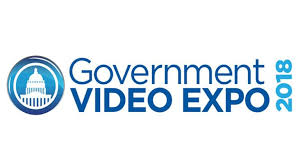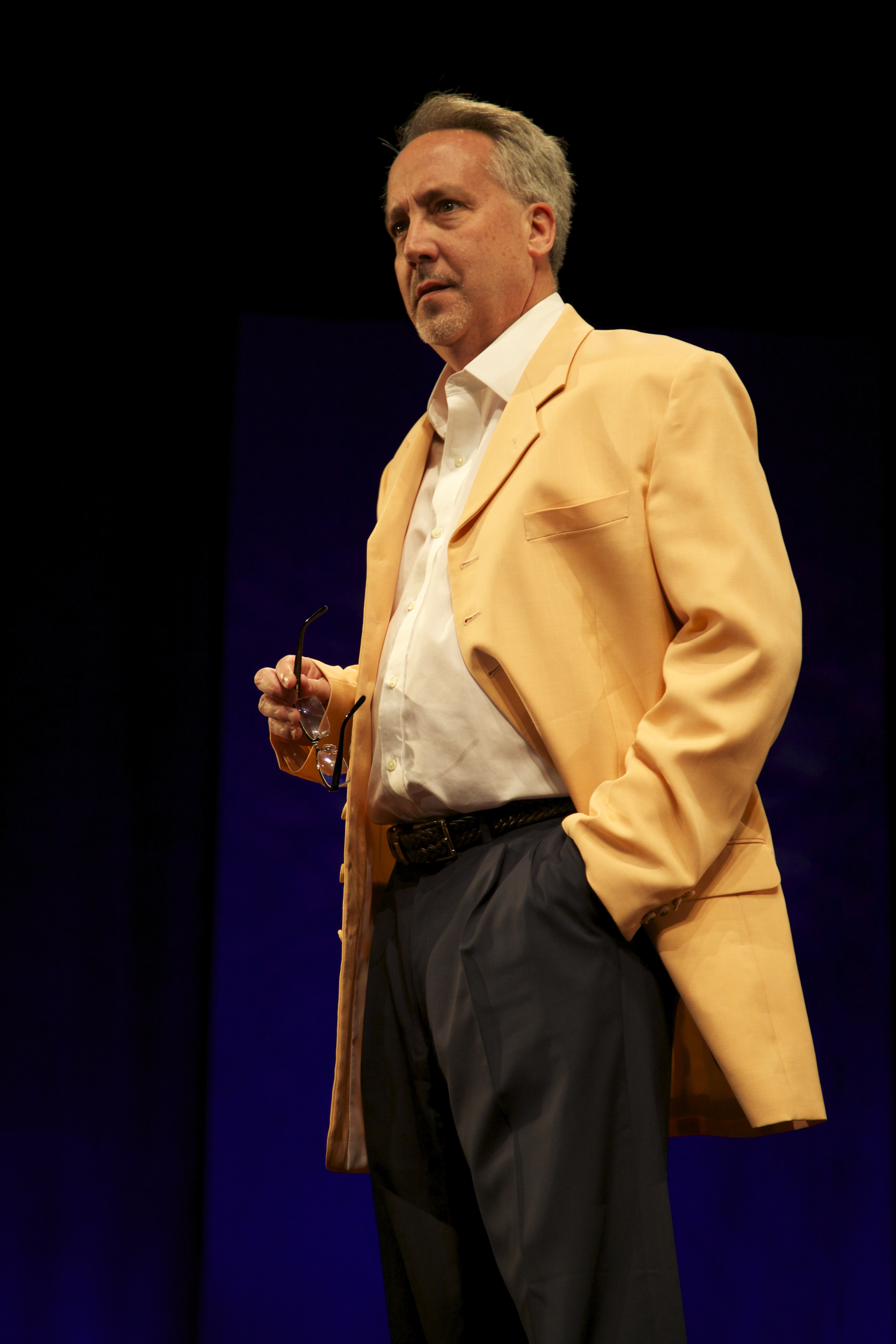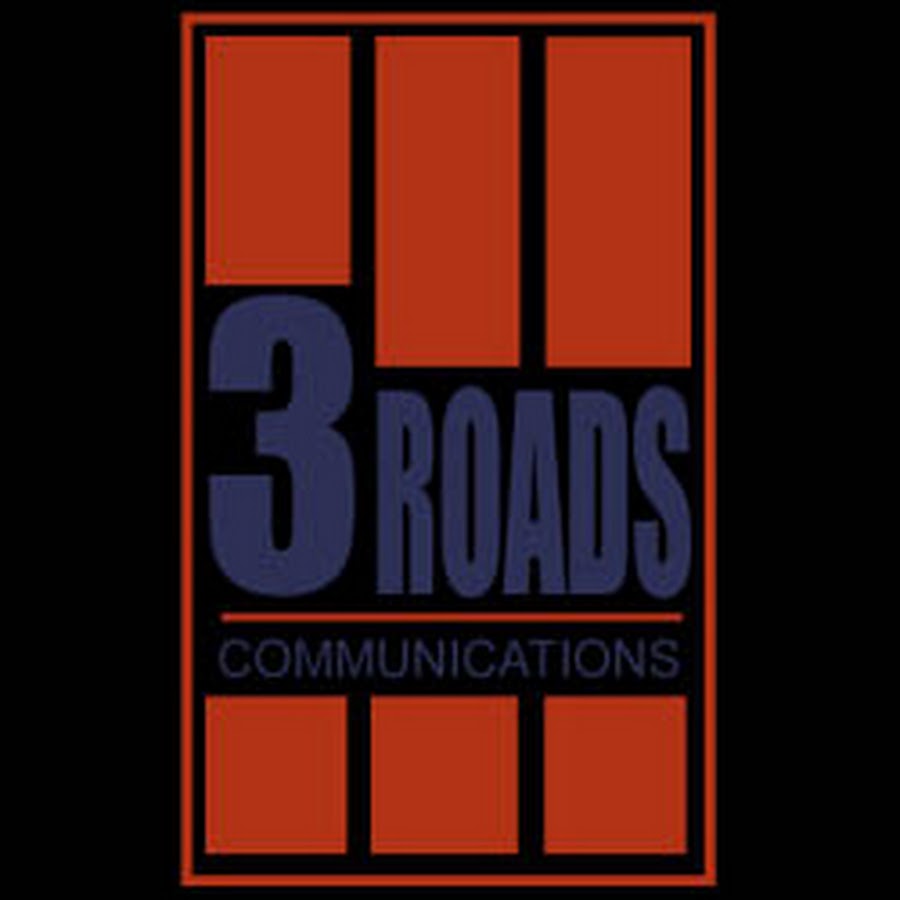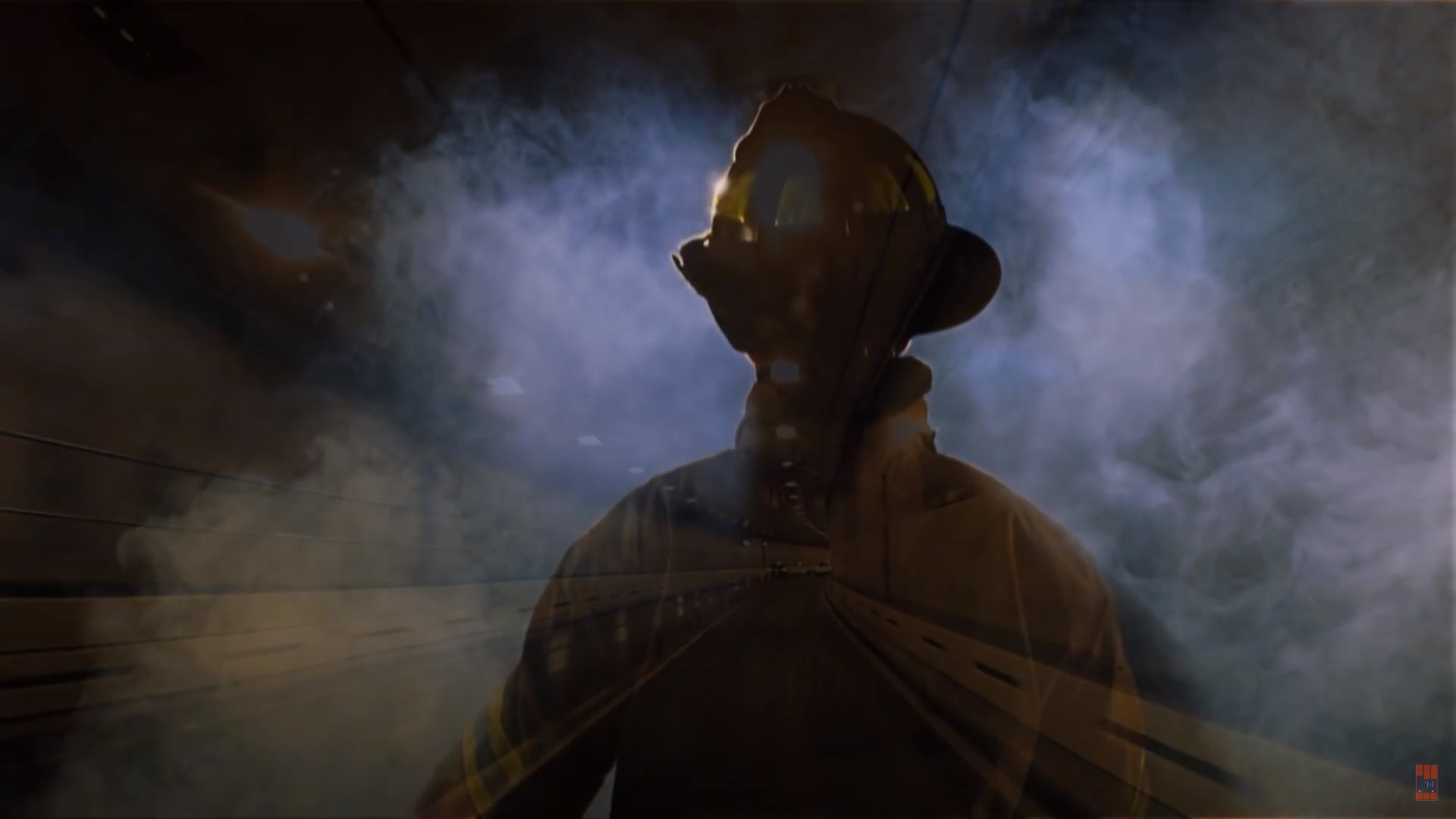The professional video industry's #1 source for news, trends and product and tech information. Sign up below.
You are now subscribed
Your newsletter sign-up was successful

WASHINGTON--While private and public sector organizations are rightfully enamored with the distribution potential of social media, the number of eyeballs that can see a production featuring a government agency is much higher still with television distribution.
At the 2018 Government Video Expo, Nov. 28-29 at the Walter E. Washington Convention Center in Washington, D.C., Russ Hodge, President of 3 Roads Communications in Frederick, Md., will reveal his production company’s success stories and best practices in partnering government agencies with television production companies. His presentation takes place in the GV Expo Theater, Thursday, Nov. 29 at 10:40 a.m.

Government Video editor Tom Butts recently talked with Russ about his company and what he will discuss at the event.
Government Video:What do you plan on covering in your presentation?
Russ Hodge: I want to talk about how organizations communicate their message to the general public through television. A lot of government agencies produce a lot of content and have great stories to tell. Several years ago we thought about how we could help government agencies tell their message on TV.
Even though there is such a huge focus on social media now, in terms of sheer eyeballs, the number of people that you reach through television is still far superior. And of course all that material can then be repurposed online too. So the thrust of my presentation is, how agencies can use TV as kind of a message enhancer. And I'm not even talking about controlling the editorial, or anything else. but if there are stories from different agencies that would fit on Lifetime or History Channel, for example, I think that's to the agency's benefit.
GV:Are you talking about ads, PSAs, narrative programming, actual 30 minute, 60 minute drama, documentaries? What type of formats are you talking about?
The professional video industry's #1 source for news, trends and product and tech information. Sign up below.

RH: All of the above. Right now a lot of agencies do PSAs, which we produce--as a matter of fact, we have one out right now with Gary Sinise for the Library of Congress Veterans History Project. That's certainly an effective way to reach people, but I'm also talking more about the narrative programs as well as--and I hate to use the term “reality TV”--but more “unscripted programming,” as it’s called.
For instance, if you were the TSA, why couldn't you be doing a series, “Tales From The TSA,” about the various things that they discover in the airport security lines.?
GV: Can you give me examples of this type of programming that's going on right now?
RH: There really isn’t much. We are currently producing a piece on the Centennial of Fort Benning (Ga.) that will be distributed as a documentary, probably through public TV. It's nothing that's earth shattering, but it would certainly appeal to all of the millions of history and military buffs out there. So, that does have an audience.
A lot of these organizations don't even realize the kind of great stories that they have, and what it is they do. People tend to get bogged down so much in the day-to-day, and the kind of back and forth in terms of what to do, and messaging, and everything else. They don't realize that they themselves may be sitting on kind of a treasure trove of stories to tell.
GV:Do these agencies have budgets set aside for this? Have you found that they're increasing their budgets? Where does the money come from?
RH: It's a great question, Unfortunately, in my life I never find anybody who is increasing their budget to spend on me. But I don't think they necessarily even have to. I think they can develop partnerships with production companies and with cable networks, for example.
Look, all programming, all movies, it's all story driven, it's all human driven. And a lot of these places have really good stories to tell, if they are presented in the right way. Remember the phrase, “there are a million stories in the naked city?” Well, it's kind of funny to say, but there are a million stories in each of these agencies.
And maybe it's not right for everybody, but for instance, for the Army to produce a documentary about Fort Benning's Centennial is a perfectly legitimate thing. And to do it in documentary style, following broadcast documentary, public TV standards, is great for the product itself, and for the distribution because then you're not just talking to the internal audience. You're getting that out to millions of people to see.

GV:What channels, networks is your content being shown on at this point?
RH: Our first line usually is to distribute through public TV, and there are a lot of reasons for that, not the least of which is the demographics of the public TV viewer are really the type of audience that people want to hit. They are high income, high education, they are decision makers. They are the best demographic watching television, with the possible exception of CNBC.
The public TV viewer is the type of person particularly if you're an agency head, you want to influence decision makers.
Also, editorially, you know the program about your agency will be in good company. It's not going to be out there with “Keeping Up With The Kardashians,” or “Jersey Shore,” for example.
GV:Do you find that the political environment has any effect on whether agencies feel the need to do more of this type of thing?
RH: Not overtly, in the sense that, "Gee, this is happening right now. We need to do this."
But I do think these agencies have realized the impact that television--including reality TV--has had on electing the President. And the day-to-day drama that is going on in Washington, that is covered breathlessly by all the cable networks. I think they should be realizing that it's a very viable medium to get their message out too.
GV:Well, there are federal agencies that continue to do their mission and everything regardless of who is in power, right? They have a message to get out, and it doesn't really matter who's in charge, unless it has high impact. But for the most part, these agencies just continue on, for better or worse, regardless of which party is in power, would you say?
RH: That is correct. Yeah. So, that's why I don't think it's necessarily like, "Oh, Trump is President, or whatever. We need to be doing a TV show."
GV:Right.
RH: However, I think that you can certainly see the power of television on this administration.
GV:Do budget cuts ever come into effect, where an agency feels like “we need to get a message out there, so we can continue to show how relevant we are to the public?”
RH: In my experience, no one has ever said to me, "Hey, they're about ready to cut our budget. We need to do a TV show." However, I think it's very much a prophylactic. They're not gonna cut the budget of an agency that they're seeing on TV, who's doing great work saving lives week in and week out.
GV:Do you find that a lot of agencies have their own crew that are doing their own productions? Or is it mainly the agencies that don't have those types of facilities that recruit your services?
RH: It's kind of a combination of the two. Frankly, government is not set up to produce TV programming. You really need an outside entity that can act as kind of the arbiter, and who has the final say on things, just because the messaging points will bog down what the program is at a certain point. But having said that, a lot of them do have in-house [video production], but a lot of times it's contracted out. We do a lot of that stuff too.
And some of the people are very competent, some of them do come from the networks. But it's a little bit of a different way of thinking. I would say almost flip it on its ear. Do the TV show, and you'll have plenty of content for your social media, and everything else--and very well produced professional content, rather than producing things perhaps for social media, that might fit your message points, but might be unwatchable for the vast majority of the public.
GV:How does the process pan out? For example, an agency will say, "We have a certain message we want to provide." And you basically are assigned to execute it, and give them ideas? Story ideas, and things like that?
RH: It can be, but it almost works better the other way. If the agency says, "Hey, you know what, we have a lot of stories here. We've compiled 8-10 stories here, and we were thinking... “would there be any interest in terms of a cable network doing a series about us?" And the producer says, "Well, what are the stories?" And then if they outline the stories, and you can see that there is kind of a treasure trove, and there is something there, that's a good way for the agencies to get started.
And again the point about messaging... unfortunately, agencies tend to get bogged down into the minutia of message points. I’ll go back to my example about the TSA: We're not doing anything with TSA, or Homeland Security. But if you are TSA, and you have managed to foil half a dozen hijackings, that's the message you want to get out. It's the headline message, not all the 30-some messages that the agency wants.
So, it can be a bit intimidating for the agencies because they probably would have to give up some control over the final product and the final message, which of course everyone is loathe to do. But I think that it serves a much greater goal, which is to make a much larger audience aware of what it is that they do.
GV:Tell us a little bit about 3 Roads, its history, its background, and how it evolved into this particular sector, this market sector.
RH: We’re celebrating our 25th anniversary this year.
GV:Congratulations.
RH: Thank you. I used to produce a lot of the political shows in Washington, including the McLaughlin Group and a bunch of other shows like that. I won an Emmy Award for a political show called “Off the Record” I was doing for Fox at the time, and they canceled the show a month before we received the award. So I decided that I wanted to be out on my own, kind of controlling my own content, and my own destiny.
So, I started 3 Roads. My first client was “Politically Incorrect” with Bill Maher. And then we kind of built it from there, getting into the corporate, non-profit, government sector as well. We're not like any other production company, certainly in the Washington area, and probably even nationally because we do series and documentaries for TV but we also do corporate work, government work. We just got a new contract from Department of Interior.
It all kind of works hand in hand. And as the media kind of all comes together, the story telling techniques that you use in television are very similar to what you use online, and corporately, in government, and everything else. One really plays off the other very well. They work as a very good balance.
And as we're very fond of putting in our proposals, we use the same equipment, and staff in the production of our government videos, as we do in the production of our TV shows, and documentaries.
GV:Do you shoot in 4K?
RH: Actually, we do everything in 4K now. We've been in 4K for about three years now. The first project we did in 4K was for the Army Corp of Engineers on a project about coho salmon out in California.
Shooting in 4K gives our content a longer lifespan, as the world makes a transition to 4K.
GV:You also have to understand that some of your material is not still gonna be shown on television. It may be shown on larger screens.
RH: Exactly, so, it's helpful for that. Frankly, there is another benefit which most people don't even realize, which is you can push (zoom) in about 75%. So, we can just do wide shots even on interviews.
What's interesting to me is over the years, is that post production has become more important than production now. And I don't think most people realize that.
GV:Why is that?
RH: It's just because post production can do so much more than it used to.And it's like everything else, the technology has enabled this. And I don't pretend to understand the technology, but I can tell you the implications. It's funny we were doing a documentary in conjunction with the Society of Motion Picture Television and Engineers.
GV:What other advice would you give to government agencies aspiring to use TV?
RH: Even if the agency just needs a five minute explainer video about what they do, I think they would be better served by hiring a consultant to help them draft the RFP, and to figure out what it is exactly that they do, or want to do.
We do this with corporate clients all the time, and non-profits, where you go in there, and you say, "Okay, we'll spend X amount of time." And it's almost like a therapy session. And you get everybody together, and they decide what they want to do, so, that when they put out a bid, they understand what it is that they will be getting, and what it is that they're after.
And sometimes the consultant might say, "Hey, you know, it's a great idea to the five minute video. Or to do a weekly two minute social media video. But did you ever think that maybe for a little bit more money maybe you could do it, and we could have a TV show that gets nationally distributed, and then be able to repurpose the media from that anyway?
What I'm saying is it's anathema to government because they like to just put out the contract, and everybody responds. But unfortunately most of the people in contracting don't know what it is that we actually do, and they're buying paper clips one week, and computers the next, and then all of a sudden video, and/or TV programs, and they don't necessarily know. So, I guess, what I'm saying is it's the old “measure it twice, cut once” type of thing.
Top photo: A scene from a PSA for the Library of Congress' Veterans History Project, produced by 3 Roads Communications.
Click here to register for Government Video Expo, Nov. 28-29 in Washington, D.C.
Tom has covered the broadcast technology market for the past 25 years, including three years handling member communications for the National Association of Broadcasters followed by a year as editor of Video Technology News and DTV Business executive newsletters for Phillips Publishing. In 1999 he launched digitalbroadcasting.com for internet B2B portal Verticalnet. He is also a charter member of the CTA's Academy of Digital TV Pioneers. Since 2001, he has been editor-in-chief of TV Tech (www.tvtech.com), the leading source of news and information on broadcast and related media technology and is a frequent contributor and moderator to the brand’s Tech Leadership events.

